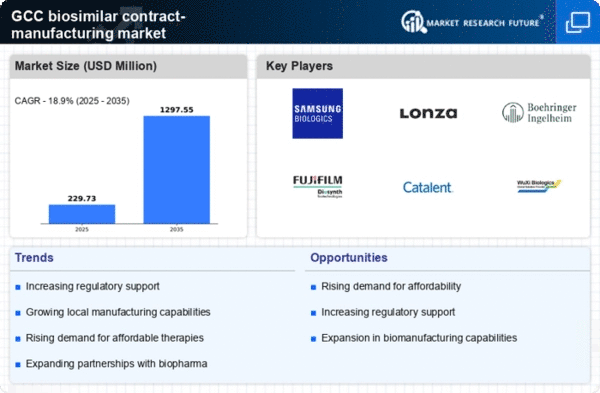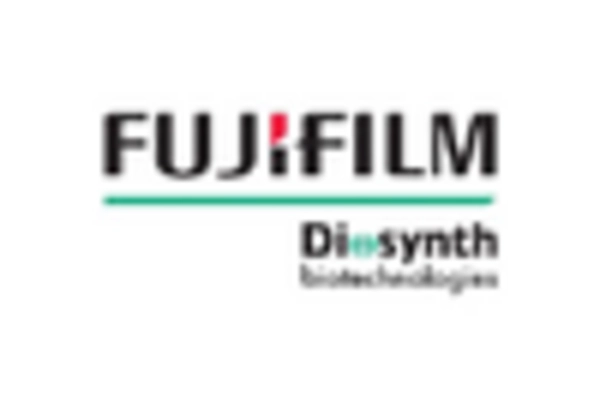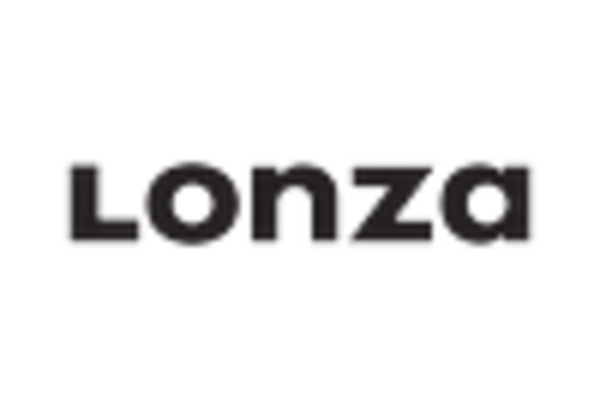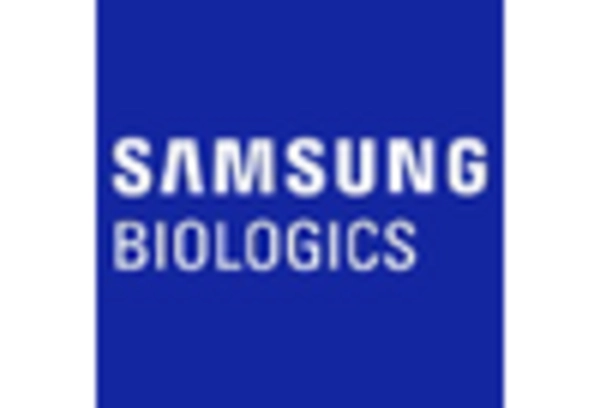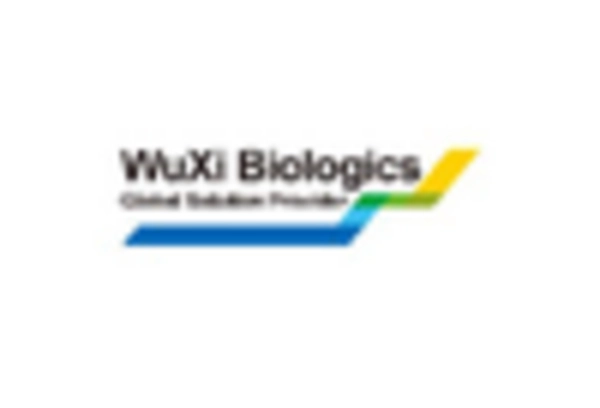Increasing Healthcare Expenditure
The rising healthcare expenditure in the GCC region is a pivotal driver for the biosimilar contract-manufacturing market. Governments are allocating more funds to healthcare, aiming to enhance access to affordable treatments. In 2025, healthcare spending in the GCC is projected to reach approximately $100 billion, reflecting a growth rate of around 7% annually. This increase in funding is likely to facilitate the adoption of biosimilars, as they offer cost-effective alternatives to expensive biologics. Consequently, the biosimilar contract-manufacturing market is expected to benefit from this trend, as pharmaceutical companies seek to leverage contract manufacturers to produce biosimilars efficiently and economically.
Regulatory Support for Biosimilars
Regulatory support for biosimilars is emerging as a crucial driver for the biosimilar contract-manufacturing market. The GCC regulatory authorities are increasingly recognizing the importance of biosimilars in enhancing patient access to therapies. Initiatives aimed at streamlining the approval process for biosimilars are being implemented, which may encourage more companies to enter the market. For instance, the introduction of guidelines for biosimilar development and manufacturing is likely to foster a more conducive environment for contract manufacturers. This regulatory backing could lead to a surge in biosimilar production, as companies seek to capitalize on the favorable landscape.
Growing Prevalence of Chronic Diseases
The growing prevalence of chronic diseases in the GCC region is a significant driver for the biosimilar contract-manufacturing market. Conditions such as diabetes, cancer, and autoimmune disorders are on the rise, leading to an increased demand for biologic therapies. According to recent statistics, the incidence of diabetes in the GCC is expected to reach 20% by 2030. This surge in chronic diseases necessitates the availability of affordable treatment options, positioning biosimilars as a viable solution. Consequently, pharmaceutical companies are likely to engage contract manufacturers to produce biosimilars, thereby expanding their portfolios and meeting the rising healthcare needs of the population.
Technological Advancements in Biomanufacturing
Technological advancements in biomanufacturing processes are significantly influencing the biosimilar contract-manufacturing market. Innovations such as single-use technologies and continuous manufacturing are enhancing production efficiency and reducing costs. In the GCC, the adoption of these technologies is anticipated to increase, driven by the need for faster and more flexible manufacturing solutions. As a result, contract manufacturers are likely to invest in state-of-the-art facilities and equipment, which could lead to improved product quality and compliance with regulatory standards. This technological evolution may create a more competitive landscape, encouraging pharmaceutical companies to partner with contract manufacturers for biosimilar production.
Rising Focus on Local Manufacturing Capabilities
The rising focus on local manufacturing capabilities within the GCC is a notable driver for the biosimilar contract-manufacturing market. Governments are promoting local production to reduce dependency on imports and enhance self-sufficiency in healthcare. Initiatives such as the establishment of free trade zones and incentives for local manufacturers are likely to encourage pharmaceutical companies to collaborate with contract manufacturers in the region. This shift towards local production may not only lower costs but also improve supply chain reliability. As a result, the biosimilar contract-manufacturing market is expected to experience growth as more companies seek to establish local partnerships.


